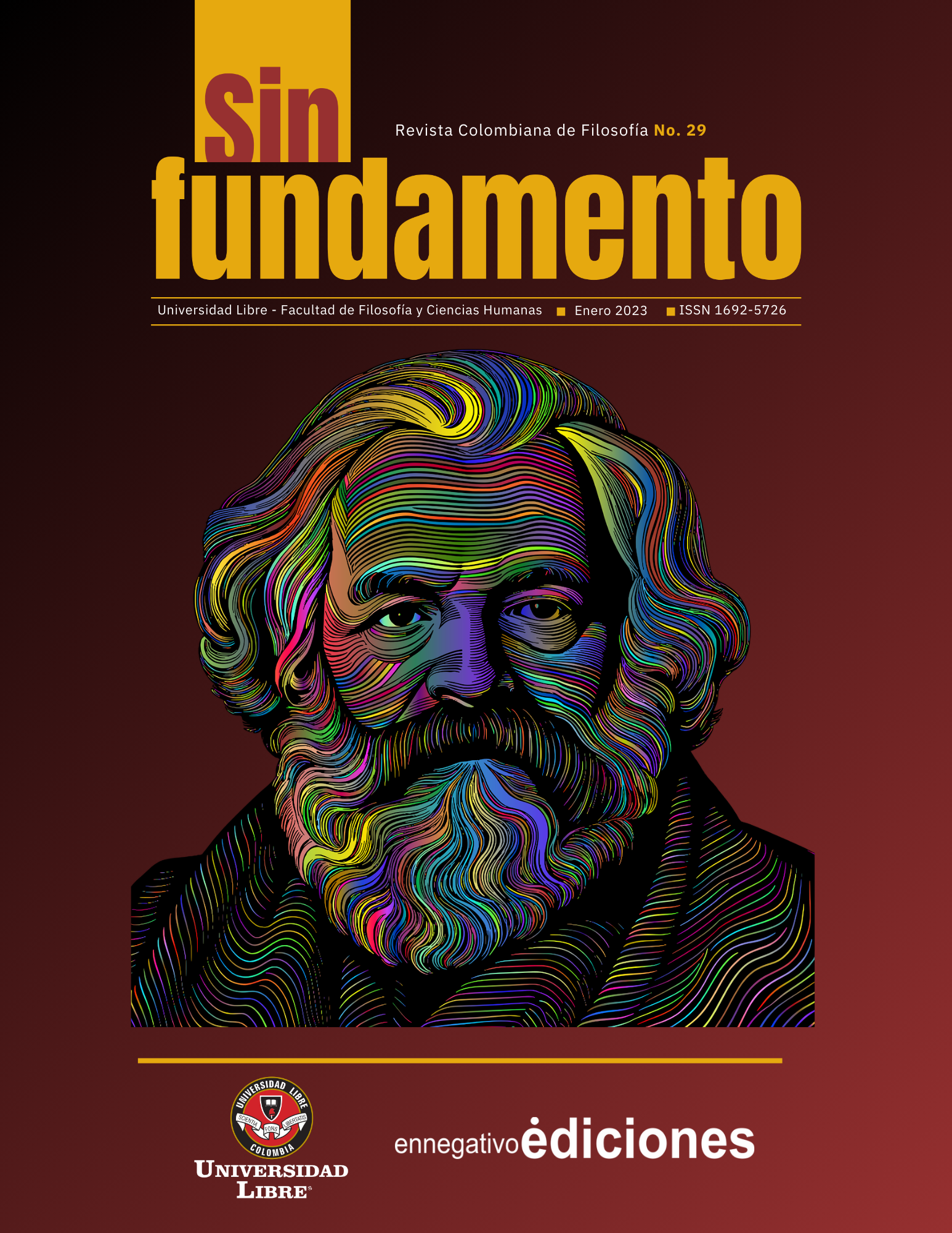Canciones de Eros: El blues de Bessie Smit
DOI:
https://doi.org/10.18041/1692-5726/sin_fundamento.29.2023.12406Palabras clave:
Angela Davis, Herbert Marcuse, Eros y Civilización, blues, estéticaResumen
El objetivo de este artículo es demostrar cómo el blues clásico de Bessie Smith ejemplifica el potencial de cambio a través de la dimensión estética. Haremos referencia a las obras Eros and Civilization: A Philosophical Inquiry into Freud, An Essay on Liberation y The Aesthetic Dimension: Toward a Critique of Marxist Aesthetics de Herbert Marcuse para ilustrar cómo la música posee un poder persuasivo sobre las mentes, almas y cuerpos de los oyentes. Además, utilizaremos Blues Legacies and Black Feminism: Gertrude “Ma” Rainey, Bessie Smith, and Billie Holiday de Angela Davis, que presenta el blues como un medio para expresar y transmitir las ideas y pensamientos de las mujeres negras, capaz de provocar cambios en la conciencia afroamericana. Bessie Smith, una de las cantantes más conocidas de blues clásico, aparece en este artículo. La cantante preservó una herencia africana en sus canciones que fue presentada a los afroamericanos, sirviendo como incentivo para modelos alternativos de comportamiento y actitudes hacia las normas establecidas.
Descargas
Referencias
Collins, P. H. (2019) Black Feminist Thought: Knowledge, Consciousness, and the Politics of Empowerment. Routledge.
Davis, A. (1998). Blues Legacies and Black Feminism: Gertrude “Ma” Rainey, Bessie Smith, and Billie Holiday. Vintage.
Marcuse, H. (1969) An Essay on Liberation. Beacon Press.
Marcuse, H. (1973). Counter-Revolution and Revolt. Beacon Press.
Marcuse, H. (1998) Eros and Civilization: A Philosophical Inquiry into Freud. Beacon Press.
Descargas
Publicado
Número
Sección
Licencia
Derechos de autor 2024 Sin Fundamento

Esta obra está bajo una licencia internacional Creative Commons Atribución-NoComercial-CompartirIgual 4.0.






